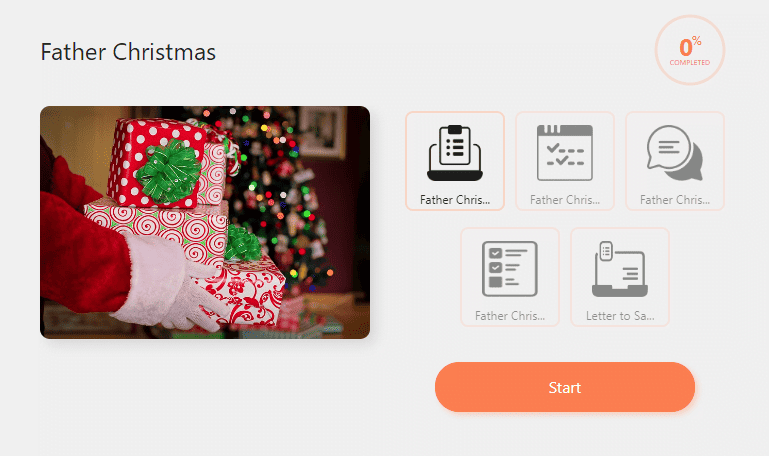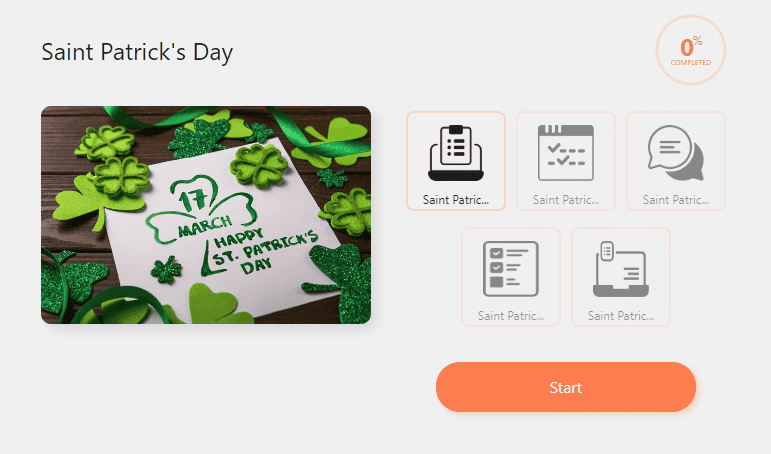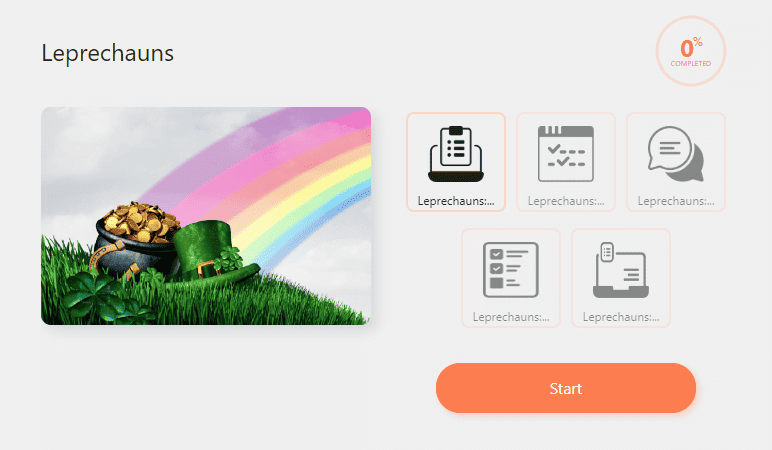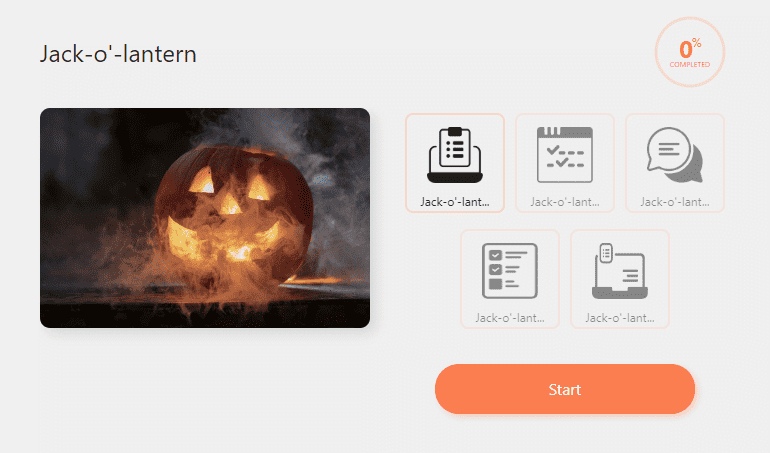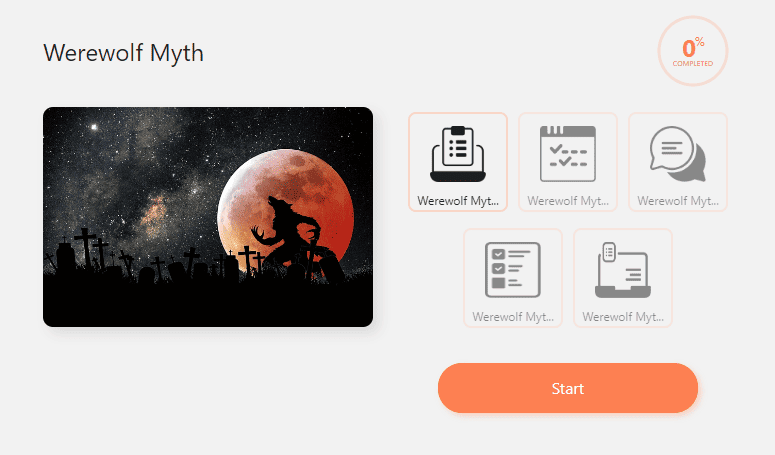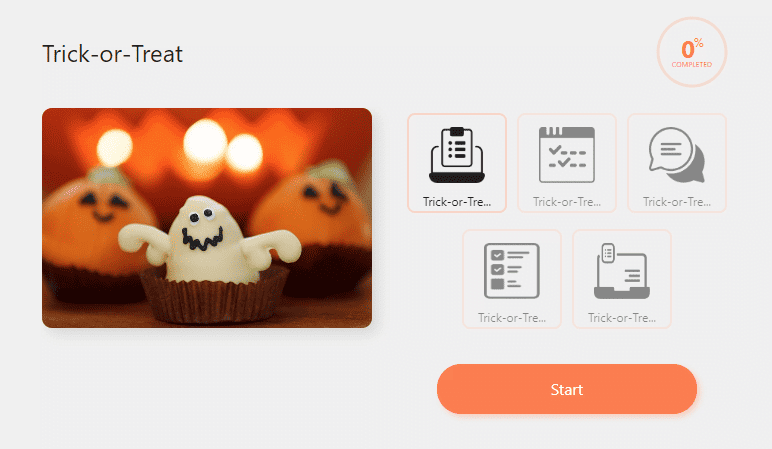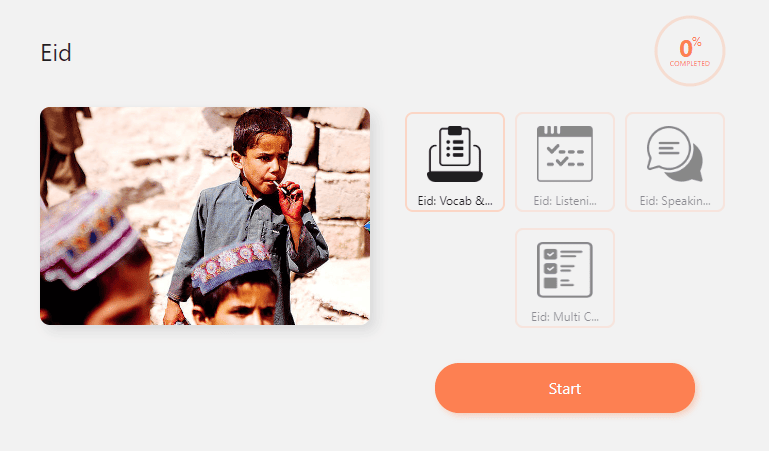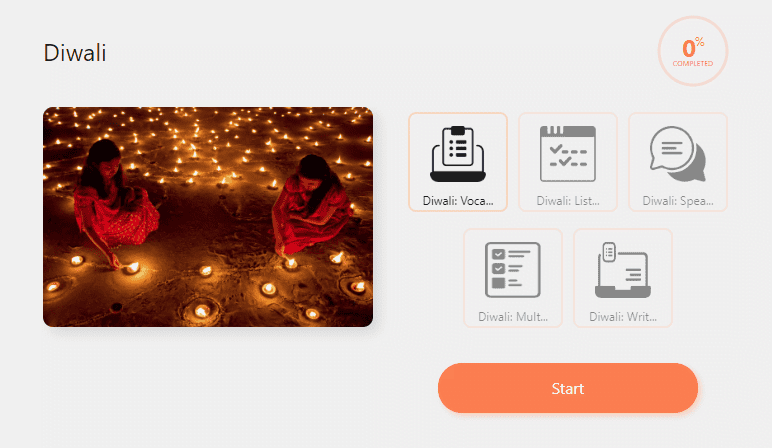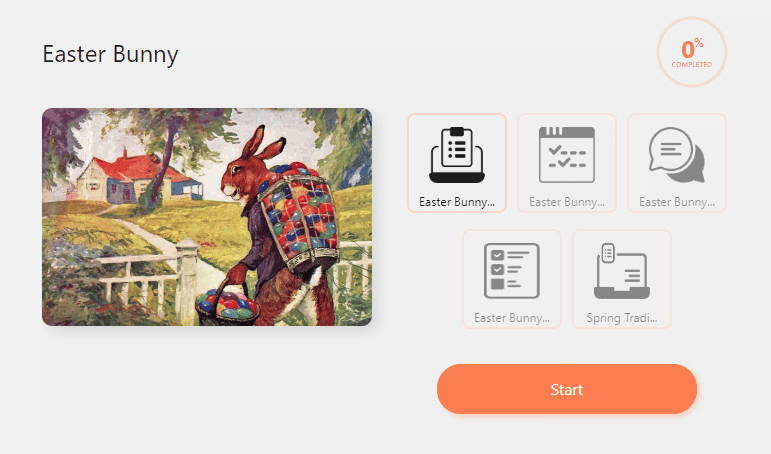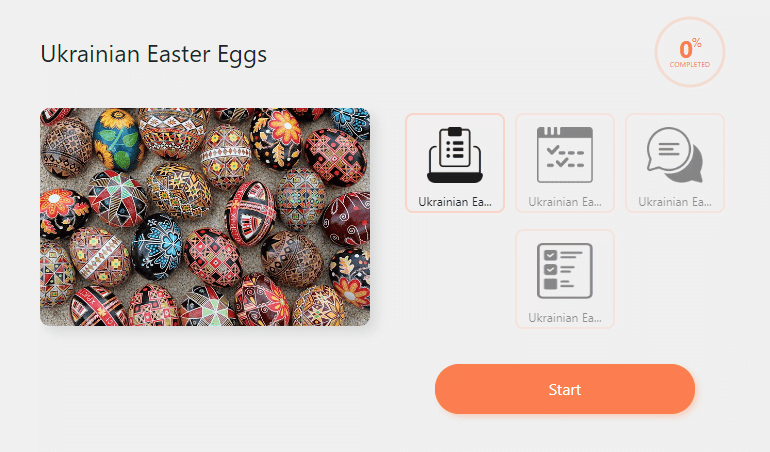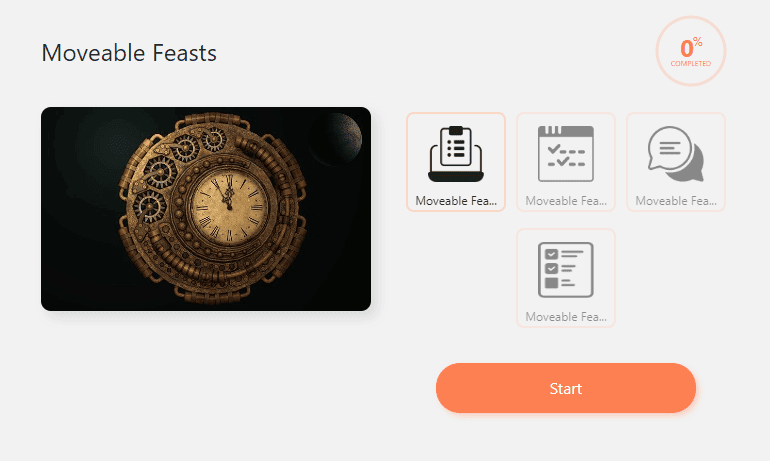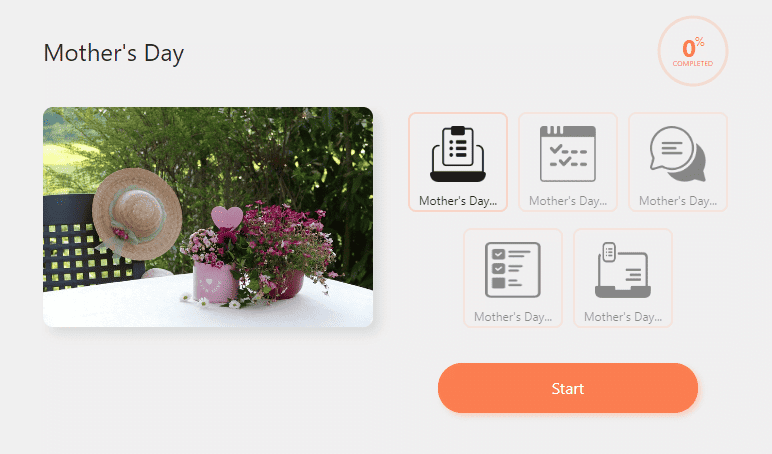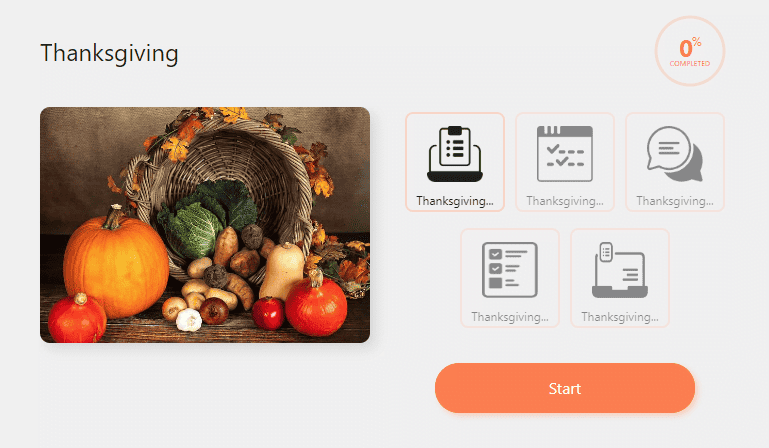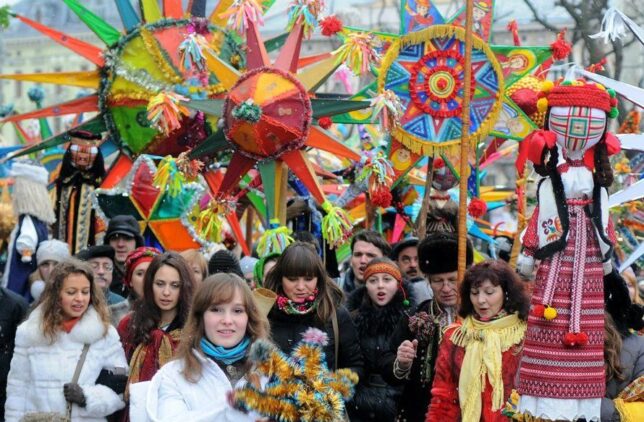Holidays provide a fun and culturally rich context for English language learners to develop their language skills. They not only adds an element of excitement to the lessons, they also offers a practical way for learners to connect the words and phrases they are learning with the people and culture of communities. From the joyous celebrations of Christmas to the colorful traditions of Diwali, each holiday serves as a unique window into language, customs, and traditions. In this blog post, we will introduce some fantastic holiday lessons that will keep your English language learners enthusiastic and engaged. Everything you find is freely available, and can be shared with your students via the URL provided. Please enjoy, and share the magic of the holidays with your English learners.
Christmas: A Season of Cheer
Christmas, celebrated on December 25th, is a widely observed holiday in English-speaking countries. From festive decorations and gift-giving to traditional carols, Christmas provides an excellent opportunity for language learners to expand their vocabulary. Lessons can include holiday-specific terms, expressions, and cultural practices, making it an engaging learning experience.
Here are some of the lessons we’ve put together to delight your learners. Click the images below to try them.
Modern Christmas - Beginner (A2)
Father Christmas - Beginner (A2)
Valentine’s Day: Hearts, Cards & Chocolate
Valentine’s Day, celebrated on February 14th, has strong connections with romance, love and affection. In classrooms, the holiday is usually marked by exchanging cards, sharing chocolates, and decorating paper hearts. Like many holidays, it is as much a commercial occasion as a cultural one. Nonetheless, learning about this holiday and how it is celebrated can make interesting material for English learners.
Here’s a lesson for learners that provides an overview of the holiday. Click the image below to try the lesson.
Valentine's Day Around the World - Advanced (C2)
Saint Patrick’s Day: An Irish Tradition
March 17th marks Saint Patrick’s Day. In some places it is celebrated with parades, green clothing and costumes, and cultural festivities. Incorporating this holiday into language lessons offers a chance to explore Irish culture, including expressions related to luck and fortune.
Here are a pair of lesson for advanced learners that introduce various aspects of the tradition. Click the images below to try the lessons.
Saint Patrick's Day - Upper-Intermediate (C1)
Leprechauns - Upper-Intermediate (B2)
Halloween: Ghosts, Goblins, & Trick-or-Treat
Without a doubt Halloween is the favorite holiday of children. Celebrated on October 31st, Halloween provides a spooky and fun context for language learning. Lessons can focus on Halloween-themed vocabulary, costume descriptions, and the cultural aspects of trick-or-treating. Engaging activities such as writing ghost stories or making a jack-o-lantern can enhance language learning activities.
Here’s a selection of lessons for beginner to intermediate learners that introduce various aspects of the Halloween tradition. Click the images below to try the lessons.
Jack-o'-Lantern - Beginner (A1)
Werewolf Myth - Beginner (A2)
Halloween Party - Intermediate (B1)
Trick-or-Treat - Intermediate (B1)
Eid: A Festival of Sweets
Eid, an important Islamic celebration, varies depending on the lunar calendar. Exploring Eid in language lessons allows learners to understand the cultural and religious significance of the holiday. Lessons can include vocabulary related to Islamic traditions, greetings exchanged during Eid, and expressions of joy and gratitude.
Here is a lesson that provides beginners with an introduction to this important holiday. Click the image below to try the lesson.
Eid - Upper-Intermediate (C1)
Diwali: The Festival of Lights
Diwali, celebrated by Hindus, Sikhs, and Jains, is a festival known for its vibrant lights and cultural significance. Language lessons centered around Diwali can include vocabulary related to the festival, descriptions of traditional clothing, and expressions of well-wishing commonly used during this festive period.
Here is a lesson that provides beginners with an introduction to this important holiday. Click the image below to try the lesson.
Diwali - Beginner (A2)
Easter: More Than Eggs and Rabbits
Easter, celebrated in the spring, offers language learners an opportunity to explore vocabulary associated with religious or cultural traditions. Lessons can include expressions related to Easter egg hunts, religious observances, and the cultural customs associated with this time of year.
Here are a pair of lessons for advanced learners that introduce various aspects of the Easter tradition. Click the images below to try the lessons.
Easter Bunny - Upper-Intermediate (C1)
Ukrainian Easter Eggs - Advanced (C2)
Moveable Feasts - Advanced (C1)
Mother’s Day: Gratitude and Love
Depending on where you are from, Mother’s Day is typically celebrated in May. It is a perfect occasion to focus on expressions of thanks for someone who has a great influence over the lives of your learners. Language lessons can involve writing heartfelt messages, making cards, or recording messages of thanks. Mother’s Day provides learners with a meaningful context to express themselves in English.
Here is a lesson that provides beginners with an introduction to this important holiday. Click the image below to try the lesson.
Mother's Day - Upper-Intermediate (B2)
Thanksgiving: A Harvest Celebration
Thanksgiving, celebrated on the fourth Thursday of November, is a time for expressing gratitude and sharing meals with loved ones. Language lessons can include vocabulary related to food, expressions of thanks, and discussions about cultural aspects of the holiday. Engaging in conversations about the historical context of Thanksgiving also offers valuable cultural insights.
Here are some lessons for intermediate learners that introduce the Thanksgiving holiday. Click the images below to try the lessons.
Thanksgiving - Upper-Intermediate (C1)
Thanksgiving Dinner - Upper-Intermediate (C1)
Greenery Day: An Appreciation of Nature
Greenery Day, celebrated in Japan on May 4th, is a day dedicated to appreciating nature and promoting environmental awareness. While not widely observed in English-speaking countries, incorporating Greenery Day into language lessons provides an opportunity to explore vocabulary related to nature, environmental issues, and expressions of appreciation for the natural world.
Here is a lesson that provides learners with an introduction to this Japanese holiday. Click the image below to try the lesson.
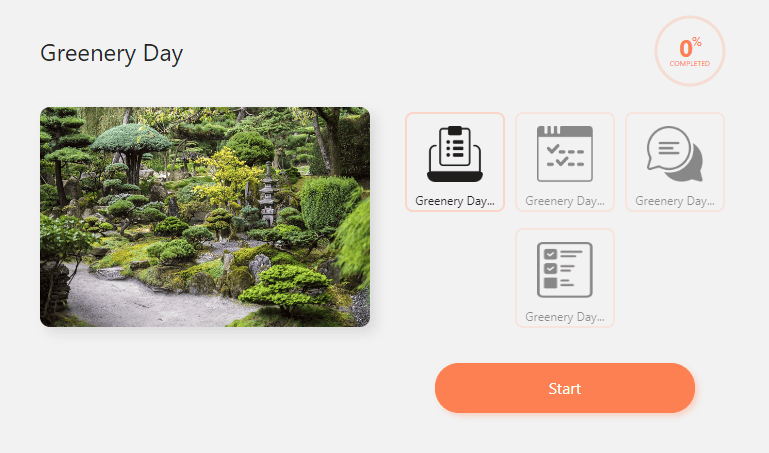
Incorporating holidays into English language lessons not only introduces new vocabulary and expressions but also provides a cultural context that enhances language learning overall. By exploring the various celebrations, learners gain a deeper understanding of the English language while immersing themselves in the diverse cultures that shape our world.



